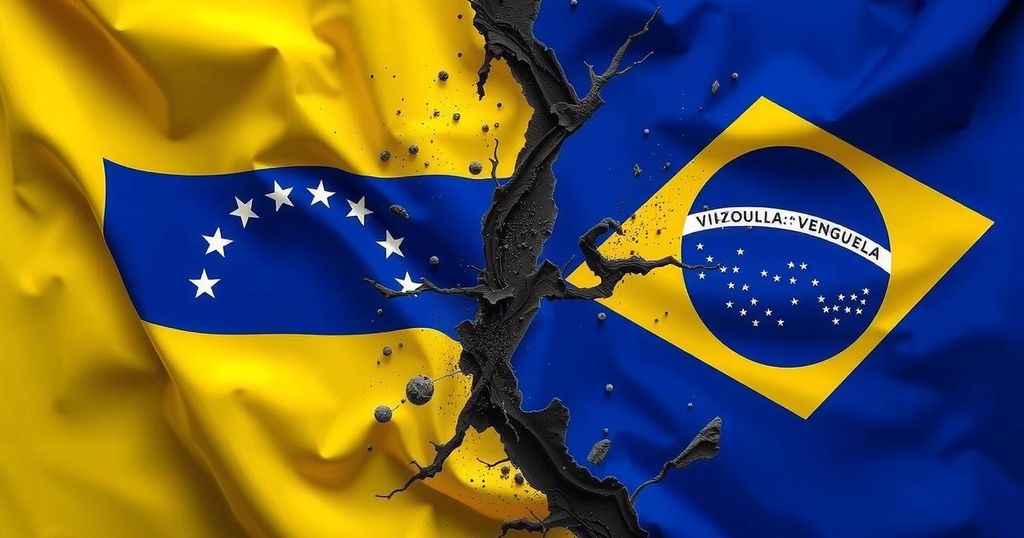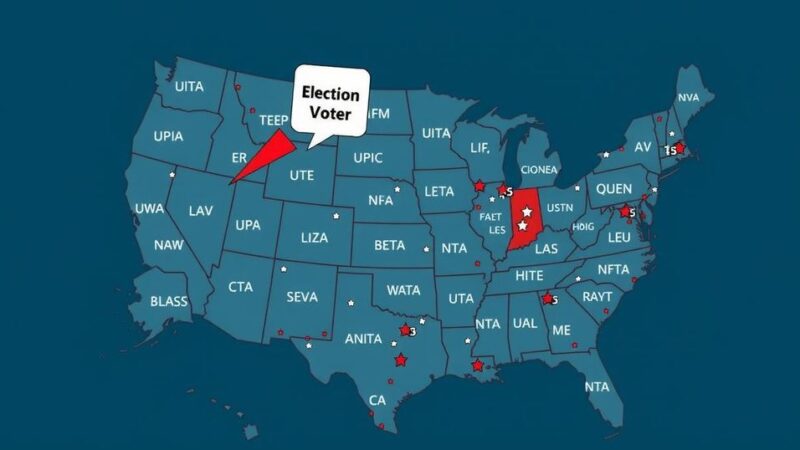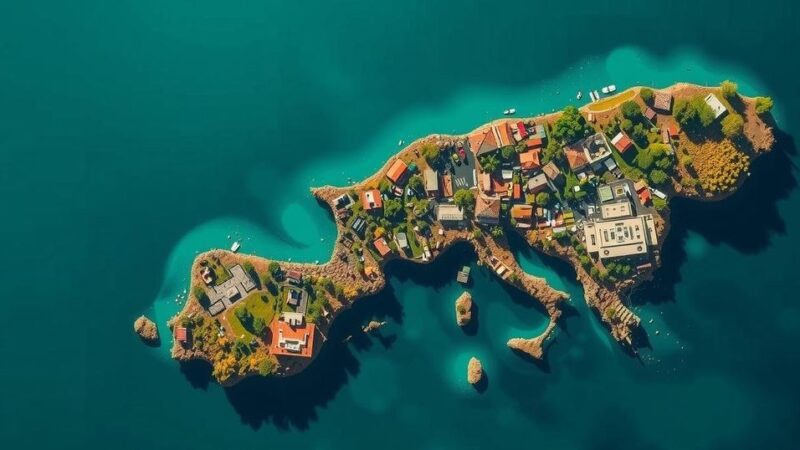Venezuela’s government has escalated its criticism of Brazil following the latter’s rejection of Venezuela’s bid to join the BRICS alliance, alleging Brazil is acting in alignment with U.S. interests. This development exacerbates existing tensions arising from contested electoral results and broader geopolitical influences.
Venezuela’s government has intensified its criticism of Brazilian officials, claiming that their actions jeopardize diplomatic relations between the two countries by catering to U.S. interests. This surge in animosity follows Brazil’s recent refusal to support Venezuela’s application to join the BRICS coalition during a summit in Russia. The rejection is seen as part of ongoing tensions stemming from Venezuela’s disputed presidential election results from July, which Brazil and other nations have called for to be made transparent. The Venezuelan Foreign Relations Ministry summoned Breno Hermann, Brazil’s chargé d’affaires in Caracas, to formally protest what it described as “recurrent interventionist and rude statements” from Brazilian government representatives. The ministry specifically criticized Celso Amorim, a former Brazilian foreign minister now serving as an adviser to President Luiz Inacio Lula da Silva, for his perceived alignment with American policy, asserting that he is undermining the Venezuelan electoral process and democracy. In a hearing, Amorim acknowledged the prevailing “discomfort” between Brazil and Venezuela, attributing it to Maduro’s reluctance to disclose comprehensive election results, which Brazilian leaders deem necessary for assessing the legitimacy of his victory. Venezuelan officials indicated that they were unable to provide such results due to a cyberattack on their system, contrasting these claims with the opposition’s assertion that they possess evidence demonstrating that Maduro was defeated in the election. Amid these tensions, prominent leftist leaders from Brazil, Colombia, and Mexico attempted to mediate Venezuela’s electoral crisis but ultimately failed. Following the election, President Maduro has since consolidated power and cracked down on dissent. The BRICS coalition, originally comprising Brazil, Russia, India, China, and South Africa, has expanded to include several new members but has seen Brazil reject Venezuela’s inclusion due to concerns over its current political standing. Amorim expressed Brazil’s position: “Brazil does not want an indefinite expansion… Venezuela today does not meet these conditions, in our opinion. Now, that isn’t a veto; that was expressed. And there, decisions are by consensus.” Venezuela’s government ultimately dismissed Brazil’s decision as “irrational behavior” and likened it to the sanctions imposed by the United States, highlighting the strained relations between the nations and the impact of external geopolitics on regional diplomacy.
The recent deterioration of relations between Venezuela and Brazil comes amid broader geopolitical tensions in South America. Venezuela, led by President Nicolás Maduro, is facing international scrutiny regarding its electoral processes and human rights record. Brazil, under President Luiz Inacio Lula da Silva, has taken a more assertive stance in foreign affairs, reflecting both historical relationships and regional diplomacy postures. The BRICS alliance has shifted to accommodate various global powers, of which Venezuela’s admission has provoked discussions about its democratic legitimacy within the coalition. Now, with Brazil opting against Venezuela’s accession, underlying friction is exemplified as the countries navigate their complex political landscapes and external influences.
In summary, the rejection of Venezuela’s BRICS application by Brazil has resulted in heightened tensions between the two nations, accentuated by accusations of American influence in Brazilian foreign policy. The ongoing disputes surrounding electoral legitimacy and democratic processes further complicate the relationship, revealing significant diplomatic rifts that continue to challenge South American unity and cooperation.
Original Source: apnews.com






